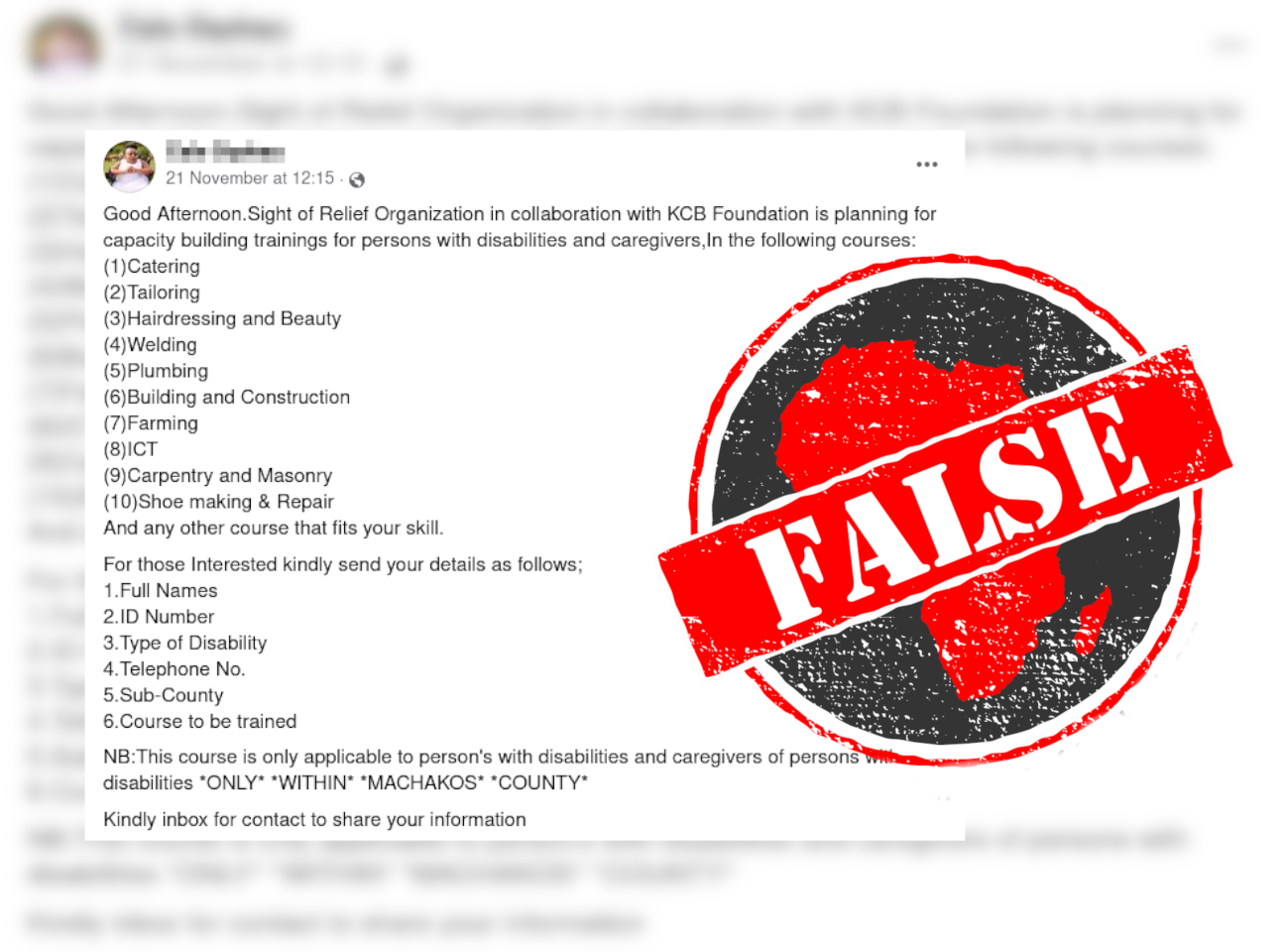IN SHORT: Facebook posts targeting those living with disabilities in Machakos county, Kenya, offer false opportunities and are preying on the vulnerable. They’re not affiliated with KCB bank and should be ignored.
A Facebook post invites Kenyans living with disabilities or their caregivers in Machakos county to apply for training in a variety of professions.
Machakos is 63 kilometres southeast of the Kenyan capital, Nairobi. The most recent census data shows it had 46,755 people living with disabilities in 2019.
The post suggests the training is backed by a large Kenyan bank, KCB.
The post says courses will be offered by “Sight of Relief Organization” in “Catering, Tailoring, Hairdressing and beauty, Welding, Plumbing, Building and Construction, Farming, ICT, Carpentry and Masonry, Shoe making & Repair and any other course that fits your skill”.
It asks those interested to “inbox for contact to share your information”. Applicants are also asked to send their personal details – including full name, identity number and type of disability.
We could not find a website for the organization, and the website linked to on its Facebook page is not available. The Facebook page description says it’s a non-profit registered in 2014 to “champion children and youth with disabilities”, but not having a live website is suspicious.
The training offer has also been published here. But is it authentic?

Fake opportunity, beware of identity fraud
KCB Group, through its verified Twitter account, dismissed the post.
The bank posted a screenshot of the announcement, seemingly also shared on WhatsApp, stamped “FAKE” in red.
The bank tweeted: “We would like to bring to your attention a notice that is doing rounds on WhatsApp seeking to recruit on behalf of the KCB Foundation. Kindly disregard it.”
KCB Foundation is the bank’s social responsibility arm. The bank added that it only shared opportunities on its website.
The posts offering opportunities for people living with disabilities appear to be fishing for personal information, which could be used in identity theft. For more information about avoiding scams on Facebook, read our guide here.
Republish our content for free
For publishers: what to do if your post is rated false
A fact-checker has rated your Facebook or Instagram post as “false”, “altered”, “partly false” or “missing context”. This could have serious consequences. What do you do?
Click on our guide for the steps you should follow.
Publishers guideAfrica Check teams up with Facebook
Africa Check is a partner in Meta's third-party fact-checking programme to help stop the spread of false information on social media.
The content we rate as “false” will be downgraded on Facebook and Instagram. This means fewer people will see it.
You can also help identify false information on Facebook. This guide explains how.


Add new comment